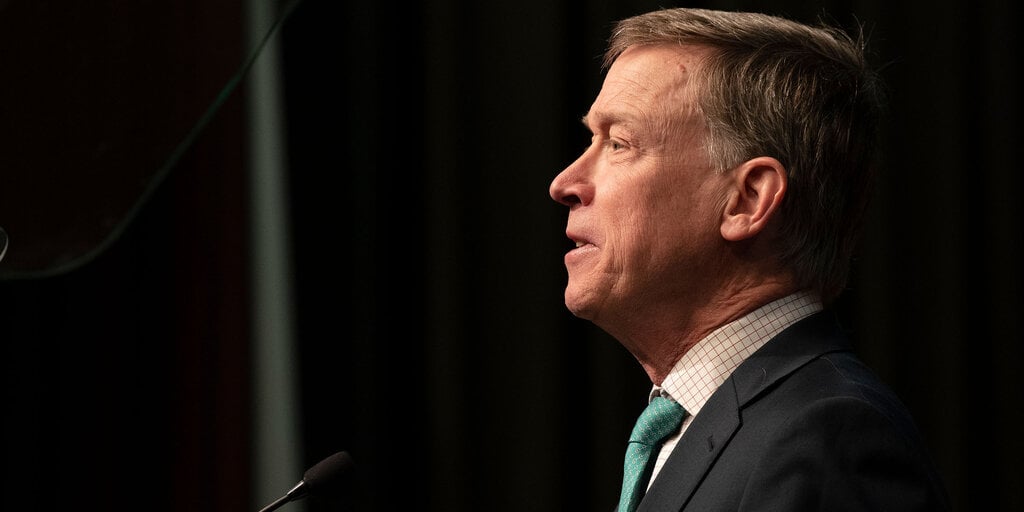Two U.S. senators from opposite sides of the aisle have introduced a bill that they say will establish safeguards against another FTX-type collapse.
The Proving Reserves of Others Funds (PROOF) Act is the brainchild of Sens. Thom Tillis (R-NC) and John Hickenlooper (D-CO), who shared a draft of the legislation on Friday. The legislation intends to guard against unethical co-mingling of customer funds and require a monthly proof-of-reserves (PoR) report from a neutral, third-party auditing firm.
According to the bill, digital exchanges must establish baseline account standards guaranteeing customer funds. It also will require verification of cryptographic proof of reserves, along with proof of a company’s liabilities, and finally, the bill states a set of civil penalties, including the pecuniary fines payable upon offense.
Lending the congressional duo who introduced the bill advice on the content, Nic Carter, a partner at Castle Island Ventures, an investment firm that focuses exclusively on blockchain-related projects. He said he’s unsure about its chances of passing, but said “there’s plenty there to like for the anti-crypto caucus.”
He hinted towards the Democratic Party, which has, for the most part, remained quite contrary to the advancement of the crypto industry in the United States–both in the Senate and the House of Representatives.
“In general,” Carter told Decrypt, “Democrats should like proof-of-reserves,” given its additional oversight for exchanges and custodians.
From the Senate, Elizabeth Warren (D-MA) and a number of other democratic senators have been busy securing the votes for an Anti-Money Laundering Act, which claims to tackle the risks involved in the crypto industry. The lower chamber, on the other hand, hosts a number of anti-crypto Democratic lawmakers, including once-pro-industry Rep. Maxine Waters (D-CA), who currently forms part of the House Financial Services Committee.
However, proof-of-reserves appears to be a broadly sought out public policy that would provide some much-needed transparency for the industry. It isn’t something new, says Carter, but it was only after the SBF debacle, that people began to understand its true importance.
Dennis Porter, founder and CEO of the Satoshi Action Fund, a non-profit advocacy group for sensible Bitcoin public policy, agrees, telling Decrypt, “we broadly agree with the idea of PoR,” and pointed to Texas’ recent HB1666 bill, as a “great example” of a proof-of-reserves requirement at the state level.
Porter took a swing at the recently passed BitLicense in California (a controversial crypto bill, say experts), calling for other states to pass regulations with a “lighter touch,” similar to that of the lone star state. He is hoping for more common sense digital asset policy, and that it be replicated at the federal level–something Tillis and Hickenlooper are seemingly pushing for.
Proof-of-reserves can be done somewhat easily thanks to the computational properties of digital assets, placing the industry, in fact, on a higher pedestal in terms of transparency compared to the legacy system.
Head of firmwide research for Galaxy Research, and crypto advocate who also offered a helping hand to Congress on the bill, Alex Thorn, says PoR has “emerged as a powerful, practical, and effective measure to promote consumer safety and regulatory compliance.”
“It’s an industry best practice,” he told Decrypt, saying that although several bills are working slowly through Congress, none address the industry’s many recent blowups like the PROOF Act.
Thorn is also optimistic that these types of innovations can breed better practices in the future. “We are hopeful policymakers will understand, recognize, and incorporate the technological benefits provided by digital assets as they examine policy options in the future,” he concluded.
Edited by Ryan Ozawa.
Stay on top of crypto news, get daily updates in your inbox.
Source: https://decrypt.co/203131/u-s-senators-set-in-motion-bipartisan-proof-of-reserves-bill


